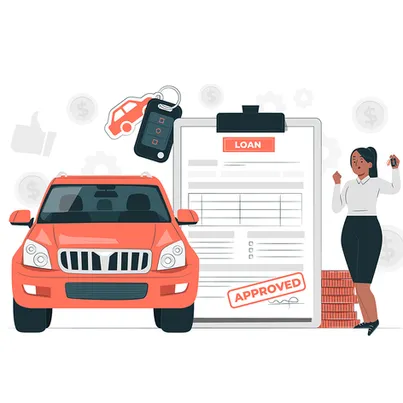Services
Loans

Home Loan
Eligibility Criteria:
- Individuals and entities, including minors, HUFs (Hindu Undivided Families), firms, companies, and trusts, are eligible to apply for a PAN card.
- PAN is essential for financial transactions and income tax purposes.
Documents Required:
Proof of Identity (Any one of these):
- Aadhar card
- Passport
- Voter ID
- Driving License
Proof of Address (Any one of these):
- Aadhar card
- Passport
- Voter ID
- Driving License
- Utility bill (electricity, water, gas, etc.)
Proof of Date of Birth (Any one of these):
- Birth certificate
- Passport
- Aadhar card
- Matriculation certificate
Photograph: Recent passport-sized color photograph.
Form 49A or 49AA: Duly filled and signed application form, which can be downloaded from the official NSDL or UTIITSL website.
Fee Payment: Payment of the applicable processing fee, which can vary based on the mode of application (online or physical form).
For entities other than individuals, additional documents such as partnership deed, certificate of registration, or incorporation certificate may be required.
Non-resident Indians (NRIs) may need to provide additional documents like a copy of the passport or a foreign bank account statement.
In the case of minors, the parent or guardian’s documents are required along with a birth certificate.
Applicants should ensure that all documents submitted are valid, legible, and match the information provided in the application form.

Mortgage Loan
Personal Identification Documents:
- Passport-sized photographs
- Proof of identity (Passport, Voter ID, Driving License, etc.)
- Proof of age (Birth certificate, Passport, PAN card, etc.)
Proof of Residence:
- Aadhar card
- Recent utility bills (electricity, water, gas)
- Rental agreement (if applicable)
Income and Employment Documents:
- Salary slips for the last 3 to 6 months
- Form 16 and Income Tax Returns (ITR) for the last 2 to 3 years
- Employment certificate from the employer
- Bank statements for the last 6 to 12 months
Property Documents:
- Title deed of the property
- Encumbrance Certificate for the last 30 years
- Property tax receipts
- Approved building plan
- NOC from relevant authorities
Financial Documents:
- Proof of investments (FDs, shares, etc.)
- Life insurance policies
- Details of other loans (if any)
Details of Existing Mortgage (if applicable):
- If you’re refinancing or getting a second mortgage, documents related to the existing mortgage.
Eligibility Criteria for Mortgage Loan:
Equity in the Property: The amount of loan you can get depends on the equity you have in your property. Equity is the current market value of your property minus the outstanding mortgage balance.
Credit Score: A good credit score is crucial. Lenders might have specific credit score requirements for mortgage loans.
Income and Debt-to-Income Ratio: Your income and your debt-to-income ratio play a significant role in determining how much you can borrow. Lenders want to ensure you have enough income to cover your debts.
Loan-to-Value (LTV) Ratio: LTV is the ratio of the loan amount to the appraised value of the property. Lenders often have maximum LTV ratios, meaning they will not lend you the full value of the property.
Property Appraisal: The property will be appraised to determine its current market value. The loan amount will often be a percentage of this appraised value.
Employment Stability: Lenders prefer borrowers with stable employment or a stable source of income.

Business Loan
Business Plan:
- Detailed business plan outlining your business model, revenue streams, market analysis, and financial projections.
Proof of Business Ownership:
- Business registration documents (Certificate of Incorporation, Partnership Deed, etc.)
- Memorandum and Articles of Association (for companies)
- Business licenses and permits
Financial Statements:
- Audited financial statements (profit and loss statement, balance sheet, cash flow statement) for the past 2-3 years (for an existing business).
- Projected financial statements for the loan tenure (for new businesses).
Bank Statements:
- Business bank account statements for the last 6-12 months to demonstrate your cash flow.
Income Tax Returns (ITR) of Business Owners/Partners:
- Personal ITR for the last 2-3 years of all the business owners/partners.
Collateral Documents (if applicable):
- Details of assets that will be pledged as collateral, such as property, equipment, or inventory.
- Property documents, if the loan is secured against property.
Eligibility Criteria for Business Loan:
Credit Score
Business Stability
Cash Flow
Collateral
Industry Type
Debt-to-Income Ratio
Purpose of the Loan
Contact Us Today

BT TOP Up
Documents Needed for a BT Top-Up Loan:
Loan Closure Letter: Proof that your existing loan has been closed or will be closed after the balance transfer.
Sanction Letter of Existing Loan: A letter from your current lender detailing the terms and conditions of your existing loan.
Loan Account Statements: Statements from your existing loan showing the outstanding balance and repayment track record.
Property Documents (for Home Loan Top-Up):
- Title deed of the property
- Encumbrance Certificate for the last 30 years
- Property tax receipts
- Approved building plan
- NOC from relevant authorities
Personal Identification and Financial Documents:
- Proof of identity (Passport, Voter ID, Driving License, etc.)
- Proof of age (Birth certificate, Passport, PAN card, etc.)
- Salary slips for the last 3 to 6 months
- Form 16 and Income Tax Returns (ITR) for the last 2 to 3 years
- Bank statements for the last 6 to 12 months
Property Valuation Report: A report from a valuator estimating the current market value of your property.
Eligibility Criteria for BT Top-Up Loan:
Existing Loan: You should have an existing loan (home loan, personal loan, car loan, etc.) from which you want to transfer the balance.
Loan Repayment Track Record: A good repayment track record on your existing loan is crucial. Lenders will assess your payment history to determine your creditworthiness.
Property Valuation: For home loan top-ups, the market value of the property should be sufficient to cover the loan amount.
Credit Score: A good credit score is essential. Lenders often have specific credit score requirements for top-up loans.
Stability of Income: Lenders prefer borrowers with a stable source of income to ensure timely repayments.
Debt-to-Income Ratio: Your debt-to-income ratio, which is the ratio of your monthly debt obligations to your monthly income, will be considered.
Loan-to-Value (LTV) Ratio: LTV is the ratio of the loan amount to the appraised value of the property. Lenders often have maximum LTV ratios.
Employment Stability: Lenders prefer borrowers with stable employment or a stable business.

Cash Credit
Documents Needed for a Cash Credit Loan:
Business Registration Documents:
- Certificate of Incorporation (for companies)
- Partnership Deed (for partnerships)
- Memorandum and Articles of Association (for companies)
- Trade License
- GST Registration Certificate
Financial Documents:
- Audited financial statements (profit and loss statement, balance sheet, cash flow statement) for the past 2-3 years.
- Income Tax Returns (ITR) for the business for the past 2-3 years.
- Bank statements for the business account for the last 6-12 months.
- Sales tax returns.
Business Plan:
- A detailed business plan outlining the purpose of the loan, how the funds will be utilized, and the expected outcomes.
Collateral Documents (if applicable):
- Details of assets that will be pledged as collateral, such as property, equipment, or inventory.
- Property documents, if the loan is secured against property.
Legal Documents:
- Any legal contracts or agreements related to the business.
- Partnership agreements, if applicable.
Repayment Plan:
- Details on how the loan will be repaid, including the proposed tenure and repayment schedule.
Eligibility Criteria for Cash Credit Loan:
Business Stability: Lenders prefer businesses that have been operational for a few years and have a stable revenue stream.
Creditworthiness: A good credit history and credit score are essential. Lenders assess the business’s and the owner’s creditworthiness.
Cash Flow: Your business should have a healthy cash flow to demonstrate that you can manage the loan repayments.
Collateral: Depending on the amount of the loan and the lender’s policies, you might need to provide collateral. The value of the collateral can influence the loan amount you are eligible for.
Purpose of the Loan: Lenders might have restrictions on how the loan can be used. Be prepared to explain in detail how the funds will be utilized for business purposes.
Industry Type: Some lenders have specific preferences for certain industries. Businesses in certain sectors might find it easier or harder to secure a cash credit loan.
Debt-to-Income Ratio: Your business’s debt-to-income ratio, similar to personal loans, plays a role in determining eligibility.
Compliance: Your business should be compliant with all statutory and regulatory requirements, including tax filings and GST.

Gold Loan
Documentation for Gold Loan:
Identity Proof: You will need to provide a government-issued photo ID proof, such as Aadhaar card, Passport, Voter ID, or Driver’s License.
Address Proof: You will need to submit a proof of your current address. Documents like Aadhaar card, Passport, Utility bills (electricity, water, gas), and Voter ID can be used for this purpose.
Photographs: Some lenders may require recent passport-sized photographs.
Proof of Ownership: You need to establish ownership of the gold you intend to pledge as collateral. Original bills or purchase receipts can be used as proof of ownership. In some cases, lenders may accept gold without proof of purchase.
Gold Jewelry: The gold you intend to pledge should be assessed for its weight and purity by the lender. This is usually done by a trained appraiser. They will determine the loan amount based on the value of the gold.
Duly Signed Application Form: You will have to fill out an application form provided by the lender with all the necessary details.
Eligibility for Gold Loan:
Age: You should typically be at least 18 years old to be eligible for a gold loan. Some lenders may have a minimum age requirement of 21.
Ownership of Gold: You need to own gold in the form of jewelry, coins, or ornaments that you can pledge as collateral. The gold should meet the purity standards set by the lender.
Repayment Capacity: Lenders may assess your ability to repay the loan. While gold loans are secured, lenders want to ensure that you have the means to repay the loan amount, including interest.
Credit History: Gold loans are usually secured loans, and your credit history may not be a significant factor in the approval process. Even individuals with poor credit can often qualify for a gold loan.
Loan Amount: The amount you can borrow depends on the value of the gold you pledge as collateral. Lenders typically offer a loan-to-value (LTV) ratio, which can vary but is generally around 75% to 80% of the gold’s current market value.
Purpose: Gold loans can be used for various purposes, including personal and business needs. Lenders may inquire about the purpose of the loan.

Used Car Loan
Documentation for Used Car Loan:
Identity Proof: You will need to provide a government-issued photo ID proof, such as Aadhaar card, Passport, Voter ID, or Driver’s License.
Address Proof: Submit a proof of your current address. Documents like Aadhaar card, Passport, Utility bills (electricity, water, gas), and Voter ID can be used for this purpose.
Photographs: Some lenders may require recent passport-sized photographs.
Income Proof: You will need to provide documents that demonstrate your income and repayment capacity. This can include salary slips, income tax returns (ITR), bank statements, or Form 16 for salaried individuals. Self-employed individuals may need to submit business financials and ITRs.
Employment Proof: For salaried individuals, you may need to provide employment-related documents, such as an employment offer letter, appointment letter, or employment ID.
Car Documents: If you have already selected a used car and are applying for a specific car loan, you may need to provide details about the car, including the purchase agreement, registration details, and insurance.
Eligibility for Used Car Loan:
Age: Most lenders require applicants to be at least 18 years old to apply for a used car loan. Some lenders may have specific age limits.
Income: Lenders will assess your income to determine your eligibility. You need to have a steady source of income, whether you are a salaried individual or self-employed. Your income should be sufficient to cover the loan EMIs.
Credit Score: Your credit history and credit score play a significant role in used car loan approval. A good credit score increases your chances of approval and may qualify you for lower interest rates.
Loan Amount: The amount you can borrow for a used car loan depends on your income, creditworthiness, and the lender’s policies. Lenders may offer different loan-to-value (LTV) ratios, with the remainder of the car’s price being the down payment.
Loan Tenure: Used car loans typically have a specific tenure, often ranging from 1 to 7 years. Your eligibility may be affected by the tenure you choose.
Employment Stability: Lenders may consider your employment history and stability. Salaried individuals with a consistent job history may have an advantage.
Residential Stability: Some lenders may prefer applicants who have a stable residential history, meaning they have lived in the same place for a certain period.
Other Loan Obligations: If you have existing loans or financial obligations, lenders may consider them when assessing your eligibility. Your debt-to-income ratio is an important factor.

Used Commercial vehicle
Documentation for Commercial Vehicle Loan:
Identity Proof: You will need to provide a government-issued photo ID proof, such as Aadhaar card, Passport, Voter ID, or Driver’s License.
Address Proof: Submit a proof of your current address, which can include documents like Aadhaar card, Passport, Utility bills (electricity, water, gas), and Voter ID.
Photographs: Some lenders may require recent passport-sized photographs.
Income Proof: Demonstrate your income and repayment capacity with documents such as salary slips, income tax returns (ITR), bank statements, or Form 16 for salaried individuals. Self-employed individuals may need to submit business financials and ITRs.
Employment Proof: For salaried individuals, provide employment-related documents, such as an employment offer letter, appointment letter, or employment ID.
Commercial Vehicle Details: If you have already selected a commercial vehicle and are applying for a specific loan, provide details about the vehicle, including the purchase agreement, registration details, and insurance.
Eligibility for Commercial Vehicle Loan:
Age: Most lenders require applicants to be at least 18 years old to apply for a commercial vehicle loan. Specific age limits may apply depending on the lender.
Income: Lenders will assess your income to determine your eligibility. You need to have a steady source of income, whether you are a salaried individual or self-employed. Your income should be sufficient to cover the loan EMIs.
Credit Score: Your credit history and credit score play a significant role in loan approval. A good credit score increases your chances of approval and may qualify you for lower interest rates.
Loan Amount: The amount you can borrow for a commercial vehicle loan depends on your income, creditworthiness, and the lender’s policies. Lenders may offer different loan-to-value (LTV) ratios, with the remainder of the vehicle’s price being the down payment.
Loan Tenure: Commercial vehicle loans typically have a specific tenure, often ranging from 1 to 7 years. Your eligibility may be affected by the tenure you choose.
Employment Stability: Lenders may consider your employment history and stability. Salaried individuals with a consistent job history may have an advantage.
Residential Stability: Some lenders may prefer applicants who have a stable residential history, meaning they have lived in the same place for a certain period.
Other Loan Obligations: If you have existing loans or financial obligations, lenders may consider them when assessing your eligibility. Your debt-to-income ratio is an important factor.

Used Tractor Loan
Documentation for Used Tractor Loan:
Identity Proof: Provide a government-issued photo ID proof, such as Aadhaar card, Passport, Voter ID, or Driver’s License.
Address Proof: Submit a proof of your current address, which can include documents like Aadhaar card, Passport, Utility bills (electricity, water, gas), and Voter ID.
Photographs: Some lenders may require recent passport-sized photographs.
Income Proof: Demonstrate your income and repayment capacity with documents such as salary slips, income tax returns (ITR), bank statements, or Form 16 for salaried individuals. Self-employed individuals may need to submit business financials and ITRs.
Tractor Details: Provide details about the used tractor you intend to purchase, including the purchase agreement, registration details (if applicable), and any insurance information.
Eligibility for Used Tractor Loan:
Age: Most lenders require applicants to be at least 18 years old to apply for a used tractor loan. Specific age limits may apply depending on the lender.
Income: Lenders will assess your income to determine your eligibility. You need to have a steady source of income, whether you are a salaried individual or self-employed. Your income should be sufficient to cover the loan EMIs.
Credit Score: Your credit history and credit score play a significant role in loan approval. A good credit score increases your chances of approval and may qualify you for lower interest rates.
Loan Amount: The amount you can borrow for a used tractor loan depends on your income, creditworthiness, and the lender’s policies. Lenders may offer different loan-to-value (LTV) ratios, with the remainder of the tractor’s price being the down payment.
Loan Tenure: Used tractor loans typically have a specific tenure, often ranging from 1 to 7 years. Your eligibility may be affected by the tenure you choose.
Employment Stability: Lenders may consider your employment history and stability. Salaried individuals with a consistent job history may have an advantage.
Residential Stability: Some lenders may prefer applicants who have a stable residential history, meaning they have lived in the same place for a certain period.
Other Loan Obligations: If you have existing loans or financial obligations, lenders may consider them when assessing your eligibility. Your debt-to-income ratio is an important factor.

